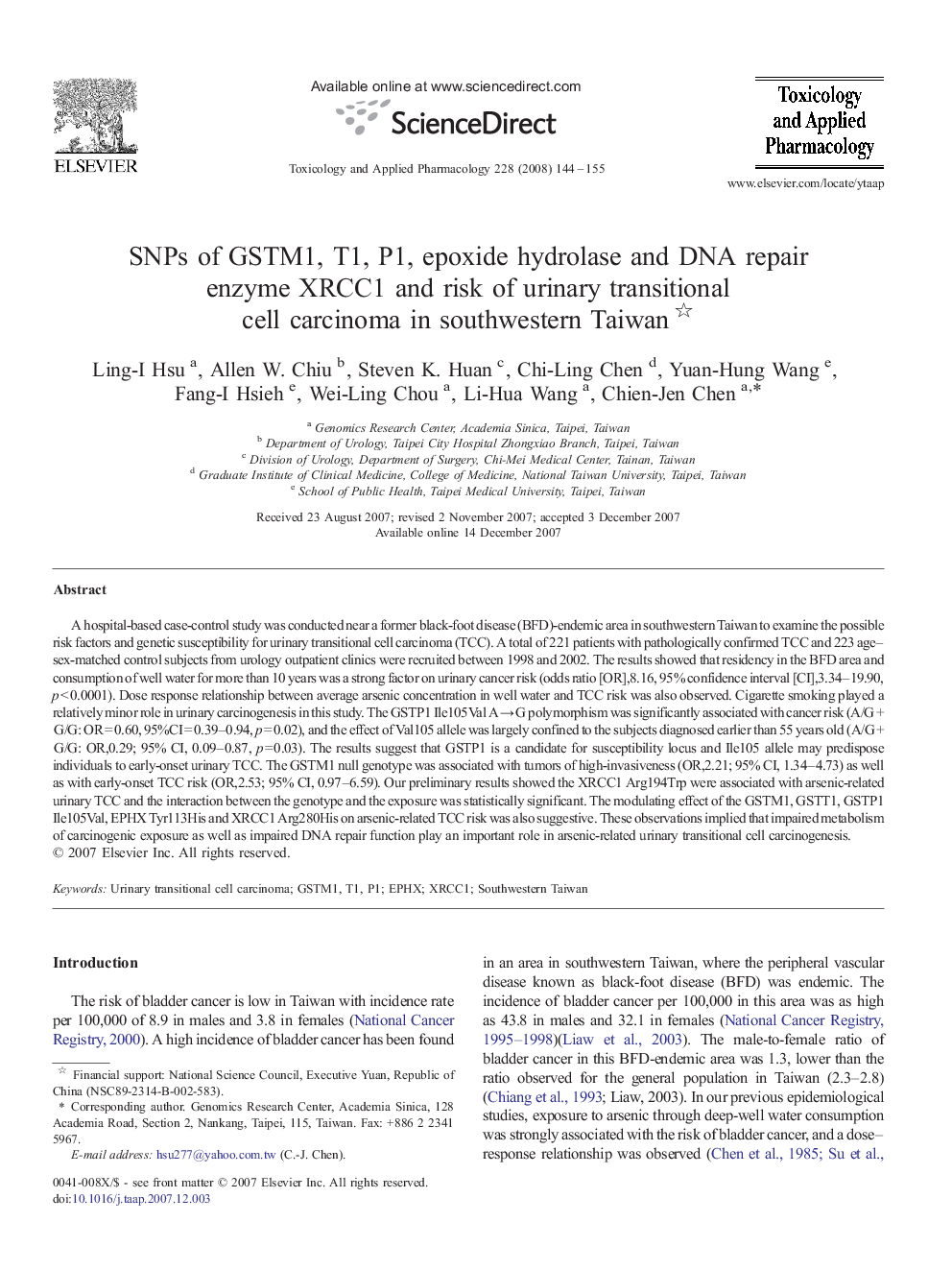| کد مقاله | کد نشریه | سال انتشار | مقاله انگلیسی | نسخه تمام متن |
|---|---|---|---|---|
| 2570432 | 1128585 | 2008 | 12 صفحه PDF | دانلود رایگان |

A hospital-based case-control study was conducted near a former black-foot disease (BFD)-endemic area in southwestern Taiwan to examine the possible risk factors and genetic susceptibility for urinary transitional cell carcinoma (TCC). A total of 221 patients with pathologically confirmed TCC and 223 age–sex-matched control subjects from urology outpatient clinics were recruited between 1998 and 2002. The results showed that residency in the BFD area and consumption of well water for more than 10 years was a strong factor on urinary cancer risk (odds ratio [OR],8.16, 95% confidence interval [CI],3.34–19.90, p < 0.0001). Dose response relationship between average arsenic concentration in well water and TCC risk was also observed. Cigarette smoking played a relatively minor role in urinary carcinogenesis in this study. The GSTP1 Ile105Val A → G polymorphism was significantly associated with cancer risk (A/G + G/G: OR = 0.60, 95%CI = 0.39–0.94, p = 0.02), and the effect of Val105 allele was largely confined to the subjects diagnosed earlier than 55 years old (A/G + G/G: OR,0.29; 95% CI, 0.09–0.87, p = 0.03). The results suggest that GSTP1 is a candidate for susceptibility locus and Ile105 allele may predispose individuals to early-onset urinary TCC. The GSTM1 null genotype was associated with tumors of high-invasiveness (OR,2.21; 95% CI, 1.34–4.73) as well as with early-onset TCC risk (OR,2.53; 95% CI, 0.97–6.59). Our preliminary results showed the XRCC1 Arg194Trp were associated with arsenic-related urinary TCC and the interaction between the genotype and the exposure was statistically significant. The modulating effect of the GSTM1, GSTT1, GSTP1 Ile105Val, EPHX Tyr113His and XRCC1 Arg280His on arsenic-related TCC risk was also suggestive. These observations implied that impaired metabolism of carcinogenic exposure as well as impaired DNA repair function play an important role in arsenic-related urinary transitional cell carcinogenesis.
Journal: Toxicology and Applied Pharmacology - Volume 228, Issue 2, 15 April 2008, Pages 144–155